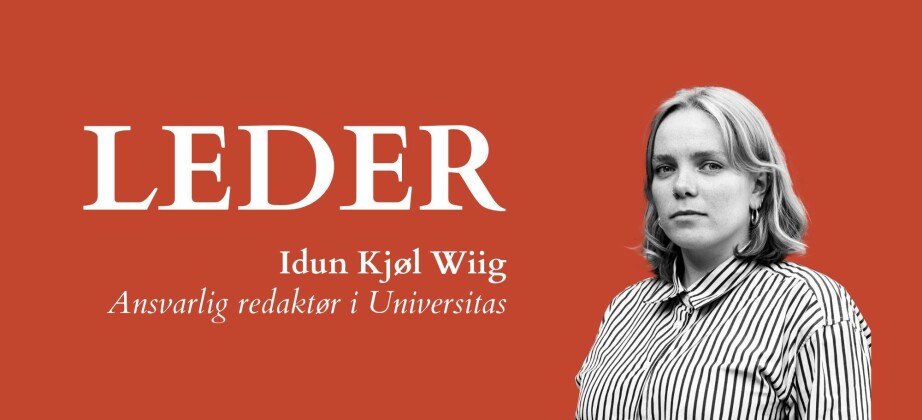
Norwegian voted down
Student politician Egil Heinert does not see the point of using Norwegian as an academic language.
– The Norwegian language is under pressure, stated Jens Kihl of the Left Alliance at Thursday’s Student Parliament (SP) meeting at the University of Oslo (UiO). Yet after a passionate language debate, it became clear that the students’ highest governing body does not want to protect the Norwegian language in a separate point in the action plan for the internationalization of studies. Social democrat and former leader of the general board at SiO, Egil Heinert, even spoke for a radical simplification of the global language situation.
– In general, I am in favour of one global language. In the current climate, that would be English. Also, I simply cannot see why we must at all costs preserve Norwegian as an academic language, Heinert said.
Deputy Leader of the Student Parliament, Jomar Talsnes Heggdal of the Liberal List, also argued against the measure.
– It is contradictory to include a protection of the Norwegian language as a measure in the action plan for internationalization.
– Throwing culture on the scrap heap
Jens Kihl from the Left Alliance suggested that: «the work towards becoming a multilingual university must be coordinated with the work to secure Norwegian as an academic language.» Kihl, who is also leader of the Norwegian Language Youth, saw his proposal voted down by 14 votes to 11, yet continues to stand his ground.
– You do not have to choose between either Norwegian as an academic language or internationalization. It is possible to have two thoughts in your head at the same time, Kihl stated to Universitas. The action plan for internationalization also aims to recruit students from abroad. However, it is not a contradiction to pay attention to Norwegian, Kihl thinks.
– I do not think that foreign students will ever come to UiO because the university becomes known as the best English language university, but they might come because it is the best Norwegian language university.
– What about Heinert’s suggestion of one global langauge?
– This suggestion says that you want to throw cultural diversity on the scrap heap, that diversity has no value. I am strongly opposed to this view on culture. Cultural diversity is as important as biological diversity. In the same way as we protect different species of animals, we have a responsibility to preserve our language, Kihl says.
Heinert stated to Universitas that he wants diversity, and that he is concerned with having a varied language.
– But compared to English, Norwegian is a poor language. Why not just enrich the global language instead? Look at «fjord» and «ombudsmann», for instance. I would rather contribute to the English language rather than create our own little world here in the north, Heinert says.
Academia under pressure
From politicans, the attitude is different. The Ministry of Education and Research has sent out a suggestion to change the Act relating to universities and university colleges, and include a paragraph stating that «Universities and university colleges have a responsibility to preserve and develop Norwegian as an academic language.» Philologist Dag Simonsen of the Norwegian Language Council maintains that Norwegian is under threat in academia.
– When it comes to research publication, especially within the field of social studies, there has been a marked increase in publications in English at the expense of Norwegian, Simonsen states.
– Does it really matter if we change over to English, if it is a richer language?
– It is a myth that English is richer than Norwegian. Any linguistic society can develop the words they need. There are no limitations on Norwegian. Yet Norwegian academic terminology is in danger of not being developed. An effort needs to be made in this area, says Simonsen, who wants the language situation in teaching to be mapped out:
– The access to master’s programmes in English has increased, yet nobody has an overview of this. The Language Council is hoping to map out motives, and determine whether the use of English is reasonably justified, or whether this is really about marketing the universities, Simonsen says.
































